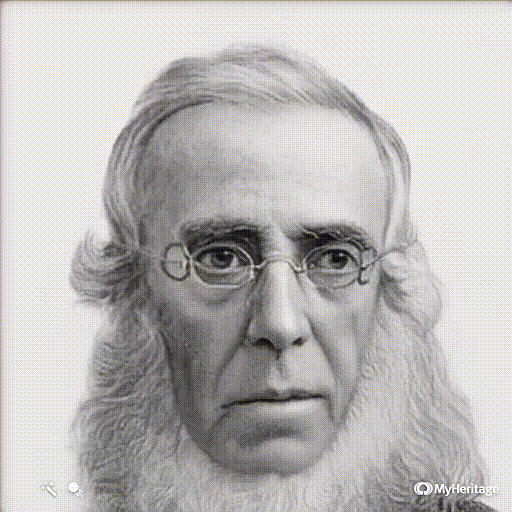Since the Cooper Union first moved to online learning due to COVID-19, many students report that online classes are quite...different... from regular, in-person learning.
Student attentiveness has dropped off now that their pets are competing with their professors for attention, and pets seem to be winning. Zoom has developed a new feature to track student engagement in online learning; however, repeated emails have failed to find enough students for trials.
Administration, on their end, are pleased with how the semester has turned out, even as despite their best efforts 50% of students remain below average. “The initial preparations and continuous refinement and evolution of pedagogy and delivery by our faculty and staff paid off,” said Dean Barry Shoop. Although administrators worried that Cooper students were not particularly happy, after seeing the lack of responses to an end-of-semester survey that they were too burnt out to reply to, administrators concluded that there were no major issues and congratulations were in order.
Cooper Union’s mental health programming has also expanded, at a time that students’ mental health is suffering more than ever. Because on-campus programming has been suspended, therapy dogs have been enjoying a well-deserved break and are noticeably less depressed after not visiting Cooper for a year. Extracurricular activities, once a bulwark of student mental health, had seen activites reduced so far that Joint Activities Committee is now badgering students to spend funds.
It’s not all bad, though. With more time in their rooms, students are discovering new study methods: “I never knew reading the textbook could be so informative!”, said one. Engineering students are particularly happy to not have to interact with others in person. Commuter students, now commuting from bed to desk, can now take more credits. Online learning has prevented Hyperloop from building another bomb. There may be lessons learned from a year teaching in the pandemic, too. To cut costs and aid the return to free, Cooper administration are looking at a plan to replace actual professors with recordings, and unskippable ads will be added to further monetize them.
After failing to properly educate its students on sexual health and romantic relationships for years, the Cooper Union has decided the pandemic, when close contact with those outside one’s household is all but prohibited, is the perfect time to start. Workshop facilitators aren’t letting a little social distancing stop them, though. They’re attempting to teach students how to flirt over video calls, both on Teams and on Zoom. “It’s been challenging, for sure,” says Mayne Thom, a workshop coordinator with Teach Engineers Dating. “We soon realized that we wrongly assumed prior dating experience or knowledge, so we had to start over from square one and teach them how to flirt. I’m proud that we have been able to make some inroads, though, as 20% of participants no longer shiver at the thought of talking to members of the opposite sex.” One workshop, Pillow Talk, was a long time in the making, created after Cooper realized it had been fucking over its students for years.
Traditional impediments to this kind of programming have lessened during the pandemic. For one, Professor Okorafor has gone the year without going on about abstinence-only sex education in the middle of class, so we’re counting that as a win. The Cooper Union is also resorting to a highly-sophisticated matchmaking algorithm, designed by students in Prof Sable’s network engineering courses. The algorithm uses students’ Teams messages to match them with other students who share their class schedules and have similar interests based on their DMs.

Not wanting to weather another semester of online teaching, Alan Wolf, the previous chair of the Physics faculty, took the administration’s offer of a retirement buyout, totalling two years of his salary plus benefits. “We are thankful to Prof Wolf for his many years of service,” said the Dean, “and we are also very glad to get him out of here, if only so that students will stop sending us whiny complaints by email.” Compared to the NAB, an incredibly expensive investment that created more problems than it solved, the buyout is considered to be Cooper Union’s most financially sound recent investment.
Retirement has taken its toll on Prof Wolf, who is now raising mini cows on his Austin, Texas ranch, completely out of character for the “okay, let’s begin” figure we know and have such polarized feelings about. Reports have it that he’s come to terms with his mortality by refraining from dying...er, dyeing his hair. “I’m glad to have so much time on my hands,” he says, “I’ve taken up a hobby in buying and selling fruit futures”. Also [directed to the interviewer, yours truly], you won’t be successful as an engineer. Maybe patent law?”
Wolf’s departure has changed some things at Cooper: for one, Prof Om Agrawal now holds the title for most students failing every semester. There is also the matter of his replacement. Philip Yecko, who now by virtue of being the only tenured member of the Physics faculty has ascended to his rightful place as department chair, has interviewed seven physics candidates for the position in collaboration with the Flatiron Institute. After much consideration, Cooper Union has chosen to hire them all and create a world-class astronomy department. With more than one woman and one person of color among the bunch, the new physics department is poised to be the most diverse in Cooper’s history by far. By hiring so many physicists, the administration hopes that prestige of the institution will produce a revolving door of new physics professors as the new hires become disenchanted, so the excruciating tenure process can be put on hold indefinitely.
Students have continued to call for the decolonization of the HSS curriculum, the same demand which has been made since Fall 2018. Due to online learning, organizers have been forced to adapt their protest methods. Rather than interrupting lectures in the Rose Auditorium while sympathetic faculty debate negotiating or joining them, students can now be found occupying a new virtual reconstruction of the Fish House. Student organizers have also gained the solidarity of NAB elevators, which have agreed to continue their periodic strikes. Entrenched faculty, however, have changed their obfuscation methods. Professors seem to be reluctantly participating in online diversity forums inside Faraday cages and tunnels, with poor internet access and a surprisingly high webcam and microphone failure rate.
The HSS department has been affected by changes in staffing and in support during the pandemic. For one, the termination of Diego Malquori, a young adjunct professor well-liked by his students, and as a committee head less well liked by the department, has raised the faculty’s average age to 63. While his position and termination may have been unrelated, humanities faculty have been known to hold legendary grudges. Rumors have it that one engineering professor was denied tenure for years after showing that Cooper would go bankrupt in a matter of years without charging tuition, an experience that engineering students might sympathize with after being graded on their papers on Thomas More's Utopia. Although student attendance seems to be up, student-professor interactions now mostly consist of professors staring into the void, and the students in the void staring back. The necessity of the HSS faculty remains evident to the administration, even if funding is apocryphal: Laura Sparks, after reading abhorrently poor grammar in student Teams direct messages, has renewed her support for the HSS faculty with a strongly-worded statement. To raise money, the HSS department will be Twitch streaming any% speedruns of the Humanities Minor approval meetings.
International students are uniquely affected by the move to decolonize. “I’m so excited to have travelled to the United States and established a new life away from my family, to learn the history of my own country from some old white lady,” says Aigoo Kim. “I really hope no one will try to play devil’s advocate. I mean, he’s the devil! He can pay for his own lawyers.”
In December, people who actually check their Cooper emails began receiving curious messages from someone identified only as “Cortana”. IT sought to mitigate the attacks by sending a link to an article warning of the danger of clicking links, and began investigating immediately - who was this, and how could they have gotten access to the Cooper Union’s prized email list?
What’s remarkable about Cortana’s emails is how they manage to be both long and detailed and utterly useless - art students have compiled the daily briefings into a grand work exceeding the length of War and Peace, which will be displayed at the End of Year Show. Cortana is also sophisticated - during the investigation, the IT department was locked out of their Teams account (although it is certainly possible this was simply a technical issue - happens to the best of us, particularly right before HSS!).
UPDATE: After much investigation, the Stuyvesant Fish house has been revealed as the source of the phishing attempt - an enigmatic white hat hacker known only as “Mr. Ng”. No other information is known about the situation, though the Cooper Union has set up a tipline at 1-800-STOP-PLS.
 All content above is meant in good faith and by no means is intended to slander. Characters described are purely functional, mapping the space of our perception of them onto this page of satire. Any resemblance to real individuals is entirely coincident.
All content above is meant in good faith and by no means is intended to slander. Characters described are purely functional, mapping the space of our perception of them onto this page of satire. Any resemblance to real individuals is entirely coincident.